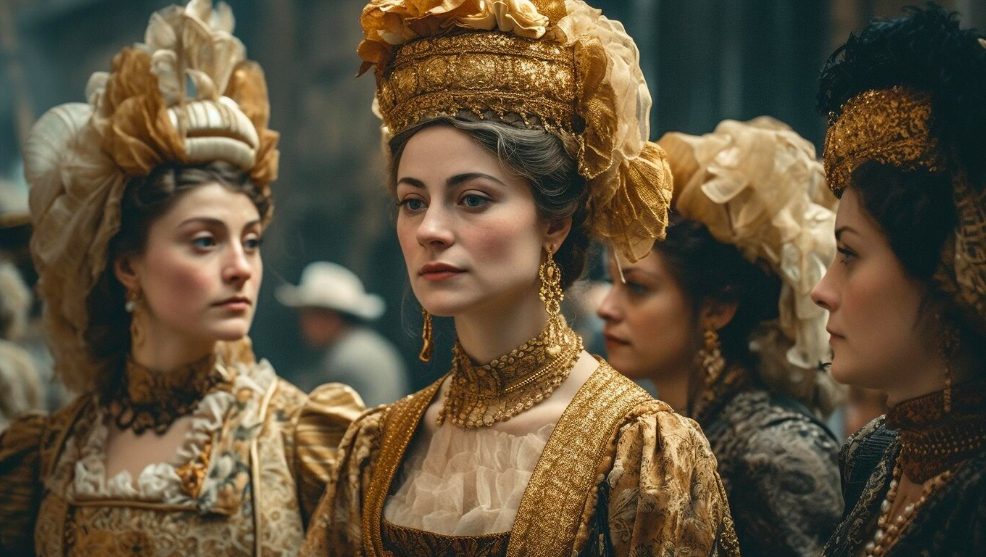The Renaissance Revolution: Artistic Brilliance and Scientific Advancement - Renaissance's scientific progress

The Renaissance, often referred to as the "rebirth" period, was an extraordinary epoch that witnessed an unprecedented fusion of artistic brilliance and scientific advancement. This article delves deep into the heart of this intellectual revolution, covering its various facets, from art and science to its lasting impact on modern society.
The Renaissance Revolution: Artistic Brilliance and Scientific Advancement
In this section, we'll explore the essence of the Renaissance, its historical context, and why it is rightfully considered a revolution.
The Birth of Renaissance
The Renaissance, which began in Italy during the 14th century, marked a departure from the medieval age. It was characterized by a renewed interest in classical antiquity, a focus on humanism, and a fervent desire to explore the realms of art and science.
Artistic Brilliance
The Masters of Renaissance Art
The Renaissance produced some of history's greatest artists, such as Leonardo da Vinci, Michelangelo, and Raphael. These geniuses crafted masterpieces that continue to captivate the world with their intricate details and emotional depth.
Fusion of Realism and Idealism
Renaissance art introduced a unique blend of realism and idealism. Artists sought to portray subjects authentically while infusing them with idealized beauty. This approach revolutionized the art world and set new standards for creativity.
Scientific Advancement
Pioneering Thinkers
The Renaissance was not limited to art alone; it also witnessed remarkable strides in science. Visionaries like Galileo Galilei and Johannes Kepler challenged traditional beliefs, advancing our understanding of the universe through their groundbreaking discoveries.
The Printing Press Revolution
Johannes Gutenberg's invention of the printing press played a pivotal role in disseminating knowledge. It enabled the mass production of books, making information more accessible and fueling the intellectual fervor of the era.
The Impact on Modern Society
The Renaissance's influence extends far beyond its time. Let's delve into how it has shaped the world we live in today.
Cultural Resonance
The Renaissance left an indelible mark on Western culture. Its emphasis on humanism, individualism, and the pursuit of knowledge remains embedded in our societal values.
Scientific Methodology
The scientific advancements of the Renaissance laid the foundation for the scientific method. This structured approach to inquiry has become the cornerstone of modern scientific research.
Artistic Legacy
Renaissance art continues to inspire contemporary artists. Its techniques and innovations remain relevant, reminding us of the enduring power of creativity.
FAQs
Q: What is the Renaissance's significance in history?
The Renaissance is a pivotal period in history known for its revival of art, culture, and science. It bridged the gap between the Middle Ages and the modern world, shaping our cultural and intellectual landscape.
Q: How did the Renaissance impact art?
The Renaissance transformed art by emphasizing realism, perspective, and human emotion. It elevated art to new heights, leading to the creation of iconic masterpieces that are celebrated to this day.
Q: What were some key scientific discoveries during the Renaissance?
Prominent scientific discoveries of the Renaissance include Galileo's observations of the cosmos, Kepler's laws of planetary motion, and the development of the scientific method, all of which laid the groundwork for modern science.
Q: How did the Renaissance change society's approach to knowledge?
The Renaissance fostered a culture of intellectual curiosity and critical thinking. It encouraged individuals to question established beliefs and seek knowledge through empirical observation and experimentation.
Q: What role did humanism play in the Renaissance?
Humanism, a central philosophy of the Renaissance, celebrated human potential and encouraged the study of classical texts. It promoted individualism, leading to a greater appreciation of human achievements in art and science.
Q: What is the enduring legacy of the Renaissance?
The Renaissance's legacy can be seen in our modern approach to art, science, and culture. Its impact on education, philosophy, and the arts continues to shape our world today.
Conclusion
The Renaissance was a remarkable period in history that witnessed the convergence of artistic brilliance and scientific advancement. Its enduring legacy resonates in our culture, science, and art. As we look back at this era, we find inspiration in the boundless human potential and the enduring pursuit of knowledge.


